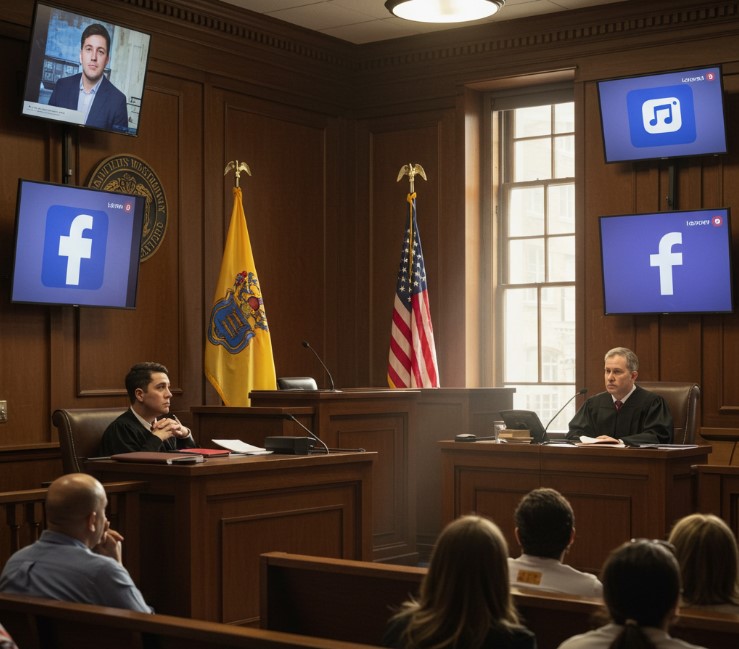The COVID-19 pandemic has altered life as we know it. As we have heard many times, the “new normal” is our reality now. The COVID-19 pandemic has created numerous issues that touch almost all aspects of society and our economy. As a result, there have been many quandaries and perplexities that arise in the workplace between employer, employee and the virus. Many of these issues mark uncharted territory and can be tricky for all to navigate, especially with the fluidity of the situation. Adding to the complication is that there is much uncertainty surrounding both the short and long term effects of both the virus and a potential vaccine. This is creating a division between people who want the vaccine, and others that do not. One such complex issue that has arisen is: Can an employer force an employee to get the COVID-19 vaccine, once it is available, as a condition of continued employment? To date, there is much discussion on this topic, but no official guidance from the EEOC or CDC yet. As of today, the FDA has approved the first vaccine for emergency use, and vaccinations are underway for the front-line workers. . This issue is quite significant because many believe that getting back to “normal” is only possible if everyone is, in fact, vaccinated.
The governing employment premise, in the vast majority of the United States, is “at will employment.” This principle permits an employer to hire and fire any employee, for any reason or no reason at all, as long as it is not unlawful, or for an employee to quit, for any reason or no reason at all. “At will” employment also gives employers the right to implement working conditions, such as those conditions that focus on the health and safety of those in their employ. So, in short, an employer may be able to require that if an employee wants to continue to work at their company, they must get the COVID-19 vaccine once it is available. That said, implementing and enforcing mandatory company-wide vaccination policies must be considered and analyzed with extreme caution.
The Americans with Disabilities Act (“ADA”) and its regulations are strict in their requirements in relation to requiring employees to take “medical examinations,” which would include vaccinations. The standard, under the ADA, is that any employer-mandated vaccination requirement must be both “job-related and consistent with business necessity.” Part of this analysis could take into account, however, the health and safety threat posed by an unvaccinated employee in the workplace.
If it would be legally permissible to mandate a COVID-19 vaccine, as a working condition, then certain employees would have some opt-out options available which may include seeking an exemption to the vaccination based on either “sincerely held” religious or disability grounds or by asking for a “reasonable accommodation” on disability or religious grounds.
If employees have medical or disability grounds opposing the COVID-19 vaccine, or hold “sincerely held religious beliefs” that prevent them from getting the vaccine, employers could be legally required to consider a reasonable accommodation (job adjustment) for that employee so that they continue to work for that employer. There is a process that must be followed in that employers must engage in an “interactive discussion” that would permit them to agree upon a reasonable accommodation for the “qualified individual” that would achieve the same end result of optimum workplace safety for all, while not creating an “undue hardship” for the employer. Some possible reasonable accommodations might include the ability to telework, the wearing of PPE, social distancing, putting up physical barriers, or working alone.
Under federal law, employers are not required to grant a religious accommodation if doing so would result in more than a “de minimis” cost to the operation of the business. Depending on where a business is located, employers would also have to consider what their state would consider to be a “reasonable accommodation” as this varies amongst jurisdictions.
Anti-vaccinators / Anti-vaxxers, or those who are just plain scared of getting the vaccine, probably would not have the legal basis to opt out of an employer-mandated _vaccination policy.
When we analyze mandatory vaccination policies, one must consider the risk of spreading COVID-19 within the workplace amongst employees, while also evaluating the risk of spread of the virus to clients, customers, contractors, and the public that the business may service. In high risk industries, such as the health care or food production industries, mandatory vaccines might be considered more reasonable as a condition of employment. This is because it is fair to say that the more likely it is that non-vaccinated employees put customers, clients, other employees, or the general public at risk, the stronger the case for mandatory vaccination will be.
As stated herein, it may be less complicated and more permissible for certain employees in essential industries, such as those who treat or have exposure to COVID-19, to require the vaccine. Many employers in the health care field already require the flu vaccine and the analysis could be a similar one. There is a difference, however, between the flu and COVID-19 vaccinations in this analysis. This is because the COVID-19 vaccine was fast tracked and _the first vaccine was recently approved under the FDA’s “emergency use authorization” for vaccinations. This is opposed to full FDA approval, such as is the case with the flu vaccine. At the time of this writing, there is little to no guidance on whether an employer can require a vaccine that is still under an emergency use authorization.
There are other concerns for employers to consider surrounding mandatory vaccination. These could include potential harm to the employee from the vaccine, such as an adverse reaction or side effect. This could lead to a potential worker’s compensation claim or a lawsuit by the employee against the vaccine manufacturer. Also, if an employee is part of a union, requiring a vaccine would likely need to be negotiated as a term of the collective bargaining agreement. Additionally, mandatory vaccination could affect productivity, retention and recruitment, depending on the industry and circumstances.
Since there is no clear answer to date, there are some tips for employers to ponder. First, employers, whatever they decide, must have a tightly drafted, legally-compliant policy that is applied consistently. Also, leadership must “buy in” and provide total transparency. It does not hurt to admit that we do not know the long-term effects of a fast-tracked vaccine, as there is uncertainty with the vaccine. That said, employers can reiterate that we do know, scientifically, that vaccines control the spread of and effects of harmful disease. Employers also can provide as much education as possible about both the virus and vaccine. Finally, a better course of action might be to strongly recommend the vaccine, rather than require it, and even to offer incentives for those who vaccinate, such as a bonus, additional PTO, and a free vaccination.
Only time will tell if employers, under the law, can require mandatory COVID-19 vaccinations. As we await guidance from the EEOC, _+that IS the question.
For any questions related to this article or in the field of employment law, please contact the Employment Attorneys at Davison, Eastman, Muñoz, Paone, P.A., Brian J. Chabarek, Esq. and Nicole Croddick, Esq.













